Bib overalls are a garment that traditionally features both a pair of pants and a bib area that covers the stomach and chest. In most cases, they have buckle and button closures near both the left and right shoulders. Most bib overalls feature many pockets, including a bib pocket at the chest and several in the legs. Some pairs also have a hammer loop, where this tool can hang from its head without scratching the leg of the wearer.
Slops
The very first bib overalls, often referred to as slops, were created in the 1700s. They were reserved for the working man and were considered a symbol of low class. These overalls were not made of denim, but instead of a tough cloth. They were built for durability and not for comfort and were not even fitted particularly well. Men usually wore them over another pair of pants.
Customization
Since run of the mill slops were not ideal for most workers, customization came into play. This included pockets for all number of tools, including rulers and pens. The standard colors of white for painters, blue for farmers and pinstripes for railroad workers appeared around the 1850s, and manufacturers started making them out of denim, a hardy cotton fabric.
Women in Overalls
Overalls were not reserved solely for the working man. Women could be seen in bib overalls too by the 1900s. Actress Helen Holmes sported a pair in a silent film in 1914, and many will remember overalls-clad Rosie the Riveter on her "We can do it" posters during World War II. She represented the millions of overalls-wearing women in the wartime factories.
Children in Overalls
In the early 1900s, OshKosh B'Gosh began selling bib overalls in children's sizes so kids could dress like their dads. Once these kid-size overalls were featured in the Miles Kimball catalog, sales went through the roof. These OshKosh overalls are still a popular children's garment today.
Fashion Overalls
Overalls made the move out of the factory and onto the streets in the 1960s. More upscale retailers began producing them in high-end fabrics and a large number of colors. Plaid and patterned overalls also showed up in boutiques, and some bought overalls simply to show off the high-fashion labels. In the 1990s, many popular hip hop artists wore overalls with one strap unbuttoned, which started a trend that made its way through American high schools.
Skirted Overalls
In 2007, actress Cameron Diaz showed up on MTV's video countdown show, Total Request Live, wearing a pair of bib overalls with a skirt on the bottom. This shows that overalls are no longer seen as simply the working man's clothing. While they are still very popular with painters, farmers, mechanics and carpenters, they have come a long way from their original stigma.
Related Articles

Handbags of the '80s

Clothes Worn in the Seventies

French Fashion of the 80s
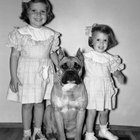
1950s Clothes for Children

What Did Kids Wear in the 80s?
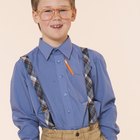
How to Adjust Clip-On Suspenders

What Do Women Pirates Wear?
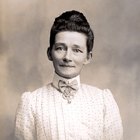
Brooch Vs. Pin
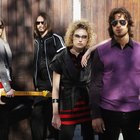
Fashion for Teen Men of the '90s
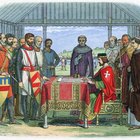
Kids' Clothing During the Medieval ...

Difference Between Male & Female Pants
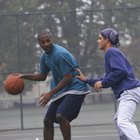
The Difference Between Nike Dunks & AF1
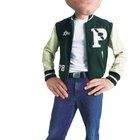
Letterman Jackets in the '50s

What Is the Difference in Converse One ...

Men's Clothes & Styles in the 1920s & ...

What Games Did Children Play in ...

Levis Jeans Label History

A Description of What the Puritans Wore

Football Facemask History

Different Kinds of Blouses
References